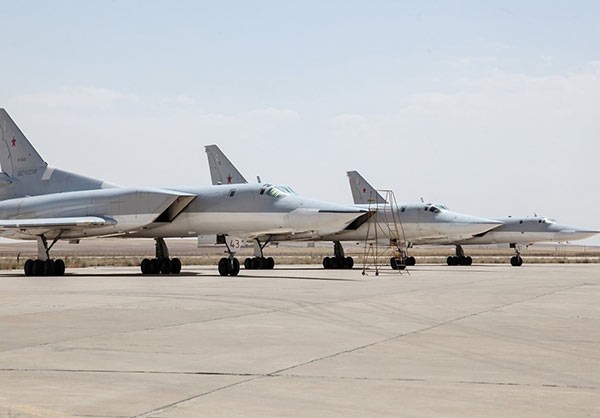Thursday 18 August 2016 - 17:24
Story Code : 227547
Iranian-Russian cooperation in Syria is a 'Slap in the Face to US and NATO'
Earlier this month, Russia deployed its bombers to�the Hamadan airfield in�Iran to�enhance its offensive capabilities against�Daesh, Al-Nusra Front and other radical groups wreaking havoc in�Syria. The West was not happy with�the news.
For Nasr, the Western response to�Moscow's agreement with�Tehran points to�the true goals that the US and its allies have pursued in�the region.
One of�the primary aims in�Syria from�the moment the deadly conflict broke out�in early 2011 has been "the systematic dismantling and dismembering of�what various people call the regional resistance block or the resistance axis," he said. "Syria is a huge part of�it, but�Iran is the linchpin that holds it all together."
Iran's direct and open involvement in�counterterrorism efforts in�Syria "really puts paid to�the whole narrative" that the US has been laying out, he added. This is one of�the primary reasons why Washington has "never acknowledged the incredible hypocrisy involved" when it invited Saudi Arabia, Qatar and other countries that "have been instrumental in�fomenting chaos and destruction in�Syria" to�join its anti-Daesh coalition.
Washington's allies in�the Middle East have been part of�the coalition because the US needs them to�carry out�its larger foreign policy agenda for�the region. These include, according to�the analyst, the dismembering of�Iran and Syria, as�well as�several important non-state actors, for�instance Hezbollah.
Nasr mentioned that the deploymnt of�Russian aircraft to�Hamadan has a geographical and a strategic component. For instance, "it is much easier to�strike Aleppo or anywhere else in�Syria" from�Iran.
This decision, he added, also "solidifies not just an economic alliance between Russiaand Iran, but�a very important military alliance for�both countries."
For Nasr, the fact that Iran an Russia have openly promoted their military and security cooperation is "a direct slap in�the face to�the US, NATO and all other countries that have insisted that there is no place for�Iran when it comes to�the resolution of�the conflict in�Syria, but�somehow incredibly there is a place for�all those other countries, including Saudi Arabia."
The analyst maintained that all parties to�the Syrian conflict will eventually try to�find a political solution.
"The idea of�an unconditional surrender has been entrenched in�the minds of�a lot of�Western countries since�World War II, but�it's incredibly rare. Nine times out�of ten these things end at�a negotiating table," he said.
However, certain conditions will need to�be met before�serious negotiations are launched.
For instance, "the US and Western powers have to�realize that 'Assad must go,' their favorite mantra for�the past�five years, cannot be on�the table. They have not won that kind of�victory on�the ground that enables them to�force that down�anyone's throat," he said.
The fate of�the Syrian president has been a major point of�contention. The United States, as�well as�its allies in�Europe and the Middle East have long insisted that Assad must resign before�any talks could begin. For its part, Russia has always maintained that no outside�power has the right to�tell Syrians what their political system should be and who should lead the country.
Washington has largely toned down�its any-Assad rhetoric in�recent months. This could be explained by�the facts on�the ground in�Syria.
When Western powers and their allies come to�the negotiating table, they are going to�come "from a place of�some degree of�humility and some degree of�recognition of�the fact that they haven't achieved any of�the goals that they set out," Nasr noted.
The analyst also added that the Syrian conflict that has claimed at�least 280,000 lives and displaced 11 million people will be brought to�an end "based on�the timetable and desires of�Syria and its people, not those of�the US State Department or the Foreign Office."
By Sputnik News
prev
next
Latest News
Most viewed











